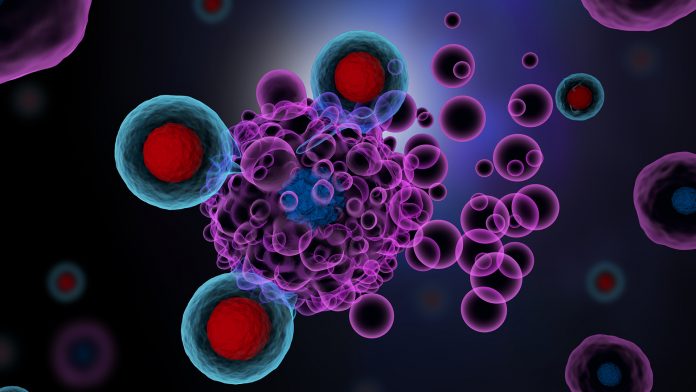
Explore how Mount Sinai researchers have made immunotherapy drugs work for treatment-resistant lymphoma for the first time.
Mount Sinai researchers have developed a way to use immunotherapy drugs against treatment-resistant non-Hodgkin’s lymphomas for the first time by combining them with stem cell transplantation, an approach that also dramatically increased the success of the drugs in melanoma and lung cancer, according to a study published in Cancer Discovery.
The world of immunotherapy drugs
This type of immunotherapy, known as ‘checkpoint blockade’ increases the ability of immune cells called T cells to fight cancer by removing the ‘cloaking effect’ that tumours use to hide from them.
Checkpoint blockade therapy is effective in several tumour types, but generally ineffective in non-Hodgkin’s lymphomas.
However, this study found that when this immunotherapy is combined with a stem cell transplant, which the researchers refer to as ‘immunotransplant’, the process boosts the T cells to increase the cancer-killing immune response tenfold, allowing it to be effective for non-Hodgkin’s lymphoma and more successful for melanoma and lung cancer.
How does the transplant work?
The transplant works by essentially making space for re-infused immune cells (T cells) to proliferate by clearing out a patient’s original immune system.
While they are proliferating and building the immune system back up, they become activated, and the anti-tumour T cells’ anticancer effect becomes stronger.
The findings have prompted the initiation of a clinical trial using the immunotransplant approach to treat patients with aggressive non-Hodgkin’s lymphoma. They also could eventually lead to effective therapies for other cancer types.
Could immunotherapy drugs enhance treatment?
Joshua Brody, Director of the Lymphoma Immunotherapy Program at The Tisch Cancer Institute at Mount Sinai, explained: “Using immunotransplant to enhance the efficacy of checkpoint blockade therapy could be broadly significant as these immunotherapies are a standard therapy for melanoma, kidney cancer, lung cancer, and others.”
“Even for settings in which checkpoint blockade therapy proves ineffective, our data suggest that its efficacy may be ‘rescued’ by immunotransplant.
“This research also suggests that the addition of checkpoint blockade may improve other T cell therapies, such as CAR-T therapy.”
Investigators based their findings in the study on their observation of how the immune system responded to bone marrow transplants, T cell therapy, immunotherapy, and immunotransplant in patients and mouse models.









